- Gastroesophageal reflux disease
- Esophageal motor disorders
- Gastrointestinal motility
- Functional gastrointestinal disorders
- Viral hepatitis
- Liver cancer
- Liver transplantation
- Acute and chronic liver disease
Gastroenterology & Hepatology Fellowship
The Division of Gastroenterology & Hepatology offers a comprehensive training program in gastroenterology and hepatology. Our three-year fellowship program provides a comprehensive foundation in clinical care and investigative research.
The program cultivates future leaders in gastroenterology and hepatology through diverse clinical experiences, cutting-edge research opportunities and exceptional mentorship. Graduates excel in both academic medicine and private practice.
More than 75% of our graduates have entered academic positions, and we have also mentored and prepared trainees for careers in community and private based practices.
About the Fellowship
Areas of Expertise
Our faculty have the following key areas of expertise:
- Colon cancer
- Peptic ulcer disease
- Inflammatory bowel disease
- Nutrition
- Pancreaticobiliary disease
- Advanced endoscopy
- Clinical trials and outcomes research
Education
The Division of Gastroenterology & Hepatology offers a rigorous and stimulating environment for undergraduate and graduate medical education in all facets of the subspecialty of gastroenterology and hepatology.
- Didactic lectures
- Case-based conferences
- Multidisciplinary and interactive discussions
- Journal clubs
- Guest speaker presentations
- Endoscopy, pathology and radiology review sessions
The weekly core curriculum spans the full breadth of gastroenterology and hepatology through faculty-led didactics, fellow-driven sessions and focused board review discussions.
Key Educational Components
- Multidisciplinary Conference
Regular exploration of complex cases involving endoscopy, pathology, radiology, esophageal disorders and IBD - GI Faculty/Fellow Conference
Rotating case presentations, journal club discussions and talks by national and international experts - Hepatology Conference
Clinical case reviews, pathology rounds, journal club, research presentations and lectures by internal and visiting faculty
These structured opportunities create a vibrant learning environment preparing fellows for board certification, academic scholarship, and advanced clinical practice.
Research
Fellows pursue training through two distinct pathways:
- Clinical Track
Emphasizes patient care and clinical investigation - Research Track
Final two years dedicated to clinical research (NIH-funded T32 program) or basic science research
This flexible structure enables fellows to explore GI and liver disease pathophysiology from multiple investigative perspectives. We provide funding for fellows to present research at national meetings and offer internal funding through the Digestive Health Foundation and university-sponsored grants.
Fellows benefit from extensive interdisciplinary collaboration with faculty in hepatology, pathology, surgery, radiology, oncology and other departments.
Scholarly Requirements
- Publish original research in peer-reviewed journals
- Present findings at national and international scientific meetings
This dual emphasis on clinical excellence and scientific inquiry prepares graduates to become future leaders in academic medicine and clinical practice.
Clinical Experience
Training Sites and Facilities
Clinical training occurs at two premier downtown Chicago institutions: Northwestern Memorial Hospital and the Jesse Brown VA Medical Center. Fellows access state-of-the-art facilities including:
- Advanced GI endoscopy suites
- Comprehensive inpatient and outpatient care units
- Modern conference and teaching spaces
- Dedicated fellow-only spaces
- Integrated electronic medical records
Fellows gain extensive hands-on experience in diagnostic and therapeutic endoscopy, complemented by a dedicated simulation curriculum that enhances endoscopic training in a controlled, risk-free environment.
Clinical Rotations
The fellowship ensures progressive skill development over three years:
- First 18 months
Core competency acquisition - Final 18 months
Clinical expertise refinement, subspecialty exposure, and scholarly productivity
Fellows maintain continuity clinics in gastroenterology and hepatology at Northwestern and the VA throughout training.
Rotation Breakdown (3 years):
- General GI Consult Service (Northwestern): 4–6 months
- Inflammatory Bowel Disease Service: 3–4 months
- Inpatient Hepatology Service: 4–6 months
- Interventional Gastroenterology Service: 2–3 months
- VA Endoscopy: 4–6 months
- Research: 6–8 months
- Hepatology Outpatient Subspecialty: 1–2 months
- Gastroenterology Outpatient Subspecialty: 2–3 months
- Esophageal Outpatient Rotation: 1–2 months
- VA Consult Service: 1–2 months
Specialized Training Tracks
T32 Transplant Hepatology Research Track- NIH-funded track for fellows committed to academic medicine.
- Provides 75% protected research time and 25% clinical training during years 2-3.
- Fellows complete a Master's Degree in Clinical Investigation at Northwestern University.
Three-Year Dual Certification Training in Transplant Hepatology
- Integrates General Gastroenterology training (Years 1–2) with dedicated Transplant Hepatology (Year 3).
- Graduates are eligible for dual ABIM board certification in both specialties.
Advanced Fourth-Year Training
Fellows may pursue additional subspecialty training in:
- Clinical Nutrition
- Inflammatory Bowel Disease (IBD)
- Transplant Hepatology
- Interventional Gastroenterology
- Esophageal Disorders
- Basic Science Research
These specialized pathways reflect our commitment to individualized training and mentorship.
Eligibility
We accept 3-5 fellows annually:
- One or two in the general GI track
- One or two in the T32 research track
- One in the transplant hepatology track
Requirements
All Applicants:
- Minimum two years postgraduate Internal Medicine training (ACGME-accredited)
- Board eligibility in Internal Medicine at fellowship entry
- Eligibility for unrestricted Illinois medical license
International Medical Graduates:
- Valid ECFMG certificate
- Valid U.S. visa status (J-1 or H1B) or permanent resident status
Application Process
The fellowship application process is through ERAS. Fellowship selection occurs after the interview process and takes place through the NRMP fellowship match program.
When submitting an application through ERAS, please be sure to include the following documents in addition to the ERAS common application:
- A current CV
- Three letters of recommendation and a fourth letter from your residency program
- Medical Student Performance Evaluation
- Medical School Transcript
- United States Medical Licensing Examination (USMLE) Score Transcript
- Personal statement
Meet Our Fellows
First Year
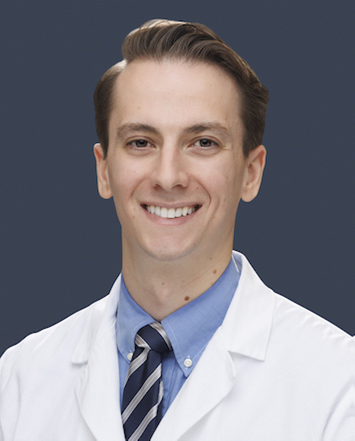
Stavros Doumas, MD
MD: University of Athens School of Health Sciences Greece
Residency: MedStar Georgetown University Hospital
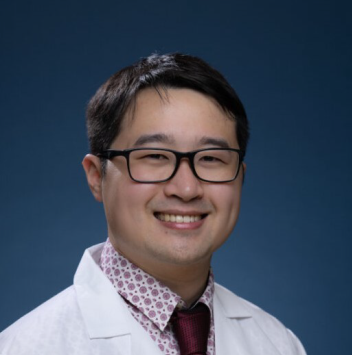
Benjamin Liu, MD
MD: Medical College of Wisconsin
Residency: Case Western Reserve University/MetroHealth

MD: Jacobs School of Medicine and Biomedical Sciences at the University at Buffalo
Residency: Northwestern University
Second Year
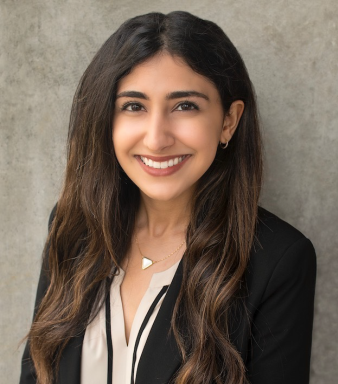
Yalda Dehghan, MD
MD: Univeristy of California, San Diego School of Medicine
Residency: Northwestern University
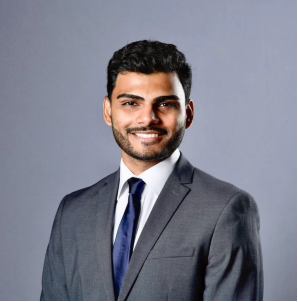
Anuragh Gudur, MD
MD: Drexel University College of Medicine
Residency: University of Virginia
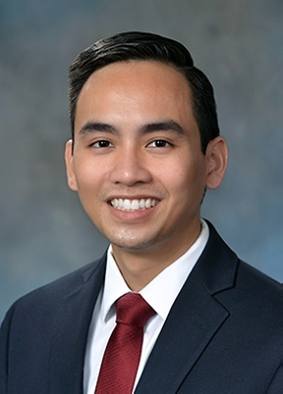
Jeffrey Than, MD
MD: Baylor College of Medicine
Residency: Northwestern University
Third Year
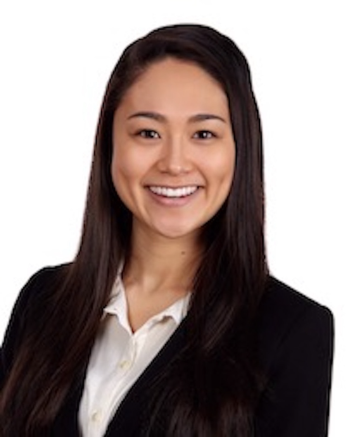
Claire Harrington, MD
MD: University of Virginia School of Medicine
Residency: Northwestern University
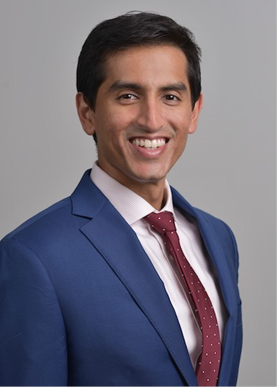
Sukrit Jain, MD
MD: The Warren Alpert Medical School of Brown University
Residency: Duke University
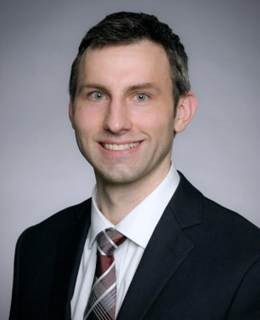
Paulius Kuprys, MD
MD: Loyola Univeristy Chicago Stritch School of Medicine
Residency: Northwestern University
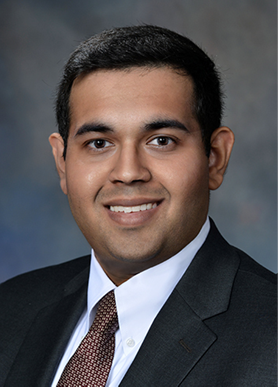
Kevin Shah, MD
MD: Baylor College of Medicine
Residency: Emory University School of Medicine
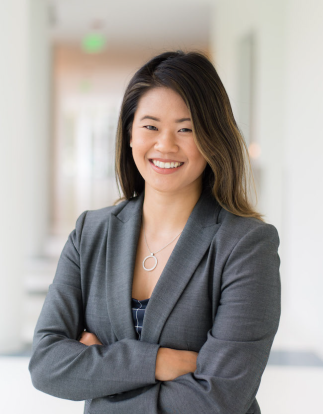
Catherine Wang, MD
MD: Case Western Reserve University School of Medicine
Residency: Brigham & Women's Hospital
Fourth Year
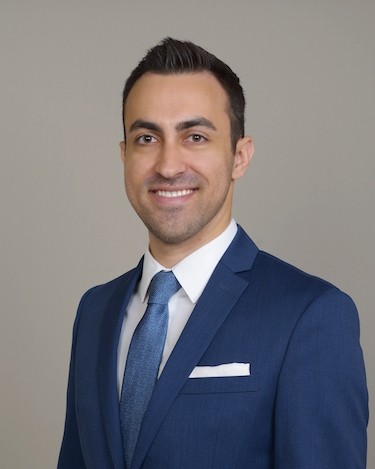
Vasilios Kalas, MD, PhD
MD: Washington University School of Medicine
Residency: Northwestern University (PSTP)
More Information
Further program details, including our housestaff manual and a sample training contract, are available on our McGaw Medical Center Graduate Education website. We also recommend reading through our FREIDA listings: Program Number 144-16-21-074.
